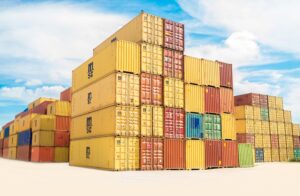Understanding the ins and outs of importing goods can be tricky, various regulations and requirements can make the process seem confusing and if not done correctly can lead to additional costs and delays.
Our team at Seaspace International are here to help guide you through the maze, making the journey as pain free as possible. Our broad technical knowledge and wide variety of services means you’re sure to find the solution with us.
Whether you’re thinking about importing goods in the future or you have a shipment ready to go there are some key points that need to be considered.
Economic Operator Registration and Identification number (EORI)
An EORI number is a number, unique throughout the European Community, assigned by Customs to businesses or persons. This unique number will be used by Customs to identify importers.
The EORI number is included on the customs declaration when you import your goods from (or export goods to) countries outside the EU. For more information on EORI and how it affects you visit http://www.hmrc.gov.uk/ and search ‘EORI’ or call us on 01293 554 620. If you don’t already have an EORI number we can help you apply for one.
Original House Bill of Lading – Your Shipment’s ‘Ticket to Travel’
Initially your supplier will have control over the original House Bill of Lading. They will probably retain this until full payment for the goods has been received. On receiving payment they will then either send the original set of documents to yourself or whoever you request them to. Seaspace will then require the original set of documents in order to release and deliver the goods.
Alternatively, to speed up this process, your supplier can surrender the originals to the origin freight agent who can in turn ‘Express Release’ the copies. We can then work to the Express Release copy instead of the originals.
 Commercial Invoice and Packing List
Commercial Invoice and Packing List
Your supplier will issue a commercial invoice and a packing list. In order to clear your goods through Customs we will require a copy of at least the commercial invoice.
If a GSP certificate or certificate of origin is applicable, we will also usually require the original copy of this. For further information on any of the above documents and how they affect you please don’t hesitate to contact us.
Terms of Sale
In any sales agreement, it is important that there is a common understanding of the delivery terms since confusion over their meaning can result in a lost sale or a loss on a sale. The terms in international business transactions often sound similar to those used in domestic business, but they frequently have very different meanings. For this reason you should insist that your supplier clearly shows the terms of sale on their invoice to you.
Freight Insurance
For many freight insurance is a must. Whilst we like to think your goods will always arrive as they should, covering the cost of the goods against damage or loss is advisable. There are many different insurance options available to shippers which may be more appropriate for some consignments than others.
Delivery
When it comes to the final delivery of goods there are a number of factors that need to be taken into consideration. Giving clear, specific delivery instructions before the goods arrive at their destination will help to minimise any delays or mistakes with delivery. Some Importers require their goods to be delivered to an address different to the one listed on the shipping documents and this should be made clear early on.
Consider how the goods will be managed when they arrive. Do you require the goods to be delivered on pallets? Are you equipped to off load pallets/large loads? The more detail we have the smoother the whole transaction will be.
Payment Terms
Unless otherwise agreed, all first time clients will be required to pay all applicable charges prior to delivery of goods. This is usually on receipt of invoice as only a limited grace period is granted before storage charges commence after date of arrival.
Any subsequent shipments, unless otherwise arranged will be subject to a 30 day end of month credit term. This does not include payments for invoices relating to Duty/VAT and Advancement charges, which are always required by return on receipt of our invoice.
There is a lot to consider and familiarise yourself with when dealing with UK imports. If you have any questions or need assistance with any part of your freight or imports, please do not hesitate to contact us. Our team are here to help and answer any questions you may have!
